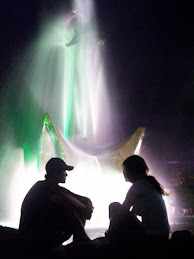 Our disciplinary lineage begins with what I call popular cyberculture, a collection of essays, columns, and books written by particularly wired journalists and early adapters. Starting in the early 1990s, these cultural critics began filing stories on the Internet, cyberspace, and the "information superhighway" for major American newspapers and magazines. Significantly, what began as an occasional column in a newspaper's technology section soon became feature articles appearing on the front page, in the business section, and in lifestyle supplements, as well as within the new media/cyberspace beat of many mainstream magazines. Between 1993 and 1994, for example, Time magazine published two cover stories on the Internet while Newsweek released the cover story "Men, Women, and Computers."
Our disciplinary lineage begins with what I call popular cyberculture, a collection of essays, columns, and books written by particularly wired journalists and early adapters. Starting in the early 1990s, these cultural critics began filing stories on the Internet, cyberspace, and the "information superhighway" for major American newspapers and magazines. Significantly, what began as an occasional column in a newspaper's technology section soon became feature articles appearing on the front page, in the business section, and in lifestyle supplements, as well as within the new media/cyberspace beat of many mainstream magazines. Between 1993 and 1994, for example, Time magazine published two cover stories on the Internet while Newsweek released the cover story "Men, Women, and Computers." The popular cyberculture writings were generally descriptive. Usually required to follow the term Internet with the parenthetical phrase the global computer network system, these journalists had the unenviable task of introducing non-technical readers to the largely technical, pre-World Wide Web version of cyberspace. Accordingly, much of this work included lengthy descriptions, explanations, and applications of early Net technologies such as file transfer protocol, gopher, lynx, UNIX configurations, telnet, and Usenet.
In the same sense of ideas, a vocal group of writers, investors, and politicians loosely refereed to as the technofuturists declared cyberspace a new frontier of civilization, a digital domain that could and would bring down big business, foster democratic participation, and end economic and social inequities. While finding platforms within major American newspapers and popular magazines, among nascent organizations like the Electronic Frontier Foundation, and throughout newsgroups, listservs, and Web sites, their primary pulpit was a new line of technozines -- glossy, visually-impairing magazines with names like Mondo 2000, bOing bOing, and Wired. Encapsulating the utopian rhetoric of the technofuturists, Wired's publisher Louis Rossetto likened cyberspace to "a new economy, a new counter culture, and beyond politics"; the magazine's executive editor Kevin Kelly proclaimed "technology is absolutely, 100 percent, positive" (Keegan 1995: 39-42).
Originally published in Web.studies: Rewiring Media Studies for the Digital Age, edited by David Gauntlett (Oxford University Press, 2000): 19-30.
Disponible en internet en:
http://rccs.usfca.edu/intro.asp
(Citado en 19 de febrero de 2008)






No hay comentarios:
Publicar un comentario